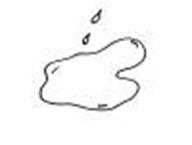Snap, the valuation is exactly the same price as you offered for the property
We can provide help and advice with regard to building surveys, structural surveys, independent valuations (note they are not more mortgage purposes but for you to see how much your property is worth), property surveys, structural reports, engineers reports, specific defects report, home buyers reports or any other property matters. As you can see from this article we use lots of sketches and photos in our reports as the feedback we have from our clients is that the sketches and photos help them understand the reports.
Please free phone 0800 298 5424 for a friendly chat with one of our surveyors.
Free phone 0800 298 5424
Valuation is a matter of opinion
Surveyors when they value give their opinion on what a property is worth. They often use what is known as a comparable method, which we will explain about further on within this article. However, it is important that you understand that the valuation is a matter of opinion and that the banks rely on the surveyors opinion.
Comparable valuations

Residential houses are usually valued on what is known as comparable valuations. This is where comparable sales of properties are looked at and the value is given based upon these, plus local knowledge, experience and the condition of the property. It certainly isn't an exact science and we have heard it described as a dark art.
Snap, The valuation is exactly the same price as you offered for the property
 The surveyors, when they go to value your house where it has been sold, will have details of how much it has been sold for. This in itself is considered as good comparable evidence, as long as the property is being fairly marketed on the open market for a reasonable amount of time.
The surveyors, when they go to value your house where it has been sold, will have details of how much it has been sold for. This in itself is considered as good comparable evidence, as long as the property is being fairly marketed on the open market for a reasonable amount of time.
As mentioned, the surveyor will also have a list of comparable properties or be able to use such a list.
There are many good websites that also offer lists of comparable house price sales. Remember, it is sales that we want to look at, rather than for sale.
It would be an interesting world if the valuers didn't have the figure the property was being sold for, particularly when many come back at exactly the same figure to the penny
Re-valuations for re-mortgage purposes
Many valuers get so used to having the sold price on the forms that they have that they are not happy to deal with valuation work, as there isn't a sold price and they actually have to work for their money looking for comparables. Whilst this may not seem particularly hard work, it certainly is if you are doing six to ten valuations per day, and perhaps you have been asked to go into an area that you don't know that well. As surveying practices used to be local but have become more centralised they do ask surveyors to go further and further afield. It is simply not possible for a surveyor to be expert in every area that he covers, though it is quite amazing some of the knowledge that they have.
Valuing new build properties
 Equally, there used to be a long queue of valuers wanting to value new build properties, as often they would be going to a property that was sold and was literally just coming out of the ground (by this we mean foundations in the ground and some walls) and with a caveat phrase, such as assuming that it was going to be built to the Building Regulations and the NHBC specifications, they literally almost didn't have to get out of the car. This we would argue is part of the problem with valuing a new build, which should be completed before the valuation is carried out, but often the pressure to get the mortgage work is so great they are valued, as we say, whilst they are still coming out of the ground.
Equally, there used to be a long queue of valuers wanting to value new build properties, as often they would be going to a property that was sold and was literally just coming out of the ground (by this we mean foundations in the ground and some walls) and with a caveat phrase, such as assuming that it was going to be built to the Building Regulations and the NHBC specifications, they literally almost didn't have to get out of the car. This we would argue is part of the problem with valuing a new build, which should be completed before the valuation is carried out, but often the pressure to get the mortgage work is so great they are valued, as we say, whilst they are still coming out of the ground.
Valuing older and Listed properties
This contrasted greatly to the concerns some valuers had when valuing older or Listed properties, or properties in conservation areas, where indeed they are concerned that in the speed they had to look at the properties they would simply miss major problems. They will then use caveats to cover any problems, for example, if they think there is the slightest possibility there is dampness then they will recommend a specialist.
Interestingly, in our dealings with claims against valuers it tended to be more the standard construction in their area, for example Victorian properties, post-war properties or even modern properties, where the main errors were made, as they were simply doing them so quickly and were used to doing that type of property that they became blind to seeing any problems, as we or you would do if you can imagine looking at 6 to 10 houses every day for five days a week, averaging around 40 houses a week, you soon lose track of which house you saw where.
Recommendations by valuers
The recommendations that the valuers have in their valuations reports can be interesting. This we would argue is because they are carrying out the valuations so quickly they don't actually have time to investigate the problem themselves. They therefore need a way of referring you onto other people that would carry out the work property.
 Unfortunately the surveying industry, rather than recommending other surveyors who are specialists in those areas, which we would say would seem strange to anyone getting the report as they would rightly wonder why the surveyor that was there couldn't have solved the problem, but then again is on a limited time, has recommended what are often known as specialist companies. The biggest examples of these are specialist damp proofing companies and specialist woodworm treatment companies. It is ironic that often these specialists are less specialised than the surveyors looking at the property and indeed certainly less specialised than building surveyors who are experts in this area.
Unfortunately the surveying industry, rather than recommending other surveyors who are specialists in those areas, which we would say would seem strange to anyone getting the report as they would rightly wonder why the surveyor that was there couldn't have solved the problem, but then again is on a limited time, has recommended what are often known as specialist companies. The biggest examples of these are specialist damp proofing companies and specialist woodworm treatment companies. It is ironic that often these specialists are less specialised than the surveyors looking at the property and indeed certainly less specialised than building surveyors who are experts in this area.

These specialist companies have adapted well to a request for valuations surveyors to have a specialist company there. They have their own association BWPDA (British Wood Preserving and Damp Proofing Association), also confusingly known as the PCA (Property Care Association). The Structural Water Proofing Group is another interesting specialist. We would say, more correctly, that these are trade associations and particularly with the BWPDA we would, in our opinion, say the main aim is to help sell chemicals.
Many of these companies advertise that they are specialists in building preservation and there are excellent arguments completely against this type of treatment that they carry out. We would refer you to Jeff Howell's excellent book The Rising Damp Myth and his other book The Builders in White Boots and Other Stories, together with the Sunday Telegraph guide to looking after your property. Whilst we would add that he is now a building surveyor, from what we understand of reading his books he was once in the BWPDA and originally has a background in bricklaying, although spent many years experimenting at South Bank University trying to find and establish if there was such a thing as rising damp.
It would be unfair of us to give the conclusion to this book here but we would certainly recommend it as being a good read.
But it is only a valuation and the valuer doesn't need to see any problems
 Unfortunately the valuers perception of what they are doing and the public's perception are very different, with the public perceiving that the valuer is carryout out a check for them (because they have after all paid for the valuation) and the check involving the condition of the property as well as the value. The valuers perception, in our experience, is that they are merely looking at the value in a shorter time and need to get round the properties as quickly as possible. This is such a shame because the public has such a massive trust in the valuer, but we believe this has come from what the valuer used to be and isn't necessarily what they are now when the valuers are working for mortgage companies.
Unfortunately the valuers perception of what they are doing and the public's perception are very different, with the public perceiving that the valuer is carryout out a check for them (because they have after all paid for the valuation) and the check involving the condition of the property as well as the value. The valuers perception, in our experience, is that they are merely looking at the value in a shorter time and need to get round the properties as quickly as possible. This is such a shame because the public has such a massive trust in the valuer, but we believe this has come from what the valuer used to be and isn't necessarily what they are now when the valuers are working for mortgage companies.
Chartered Valuers/Surveyors, what they used to do
Some independent surveyors still give a service to the client but they are becoming more and more scarce, due to the vast majority of the houses purchased are via mortgage lenders who give work to their panel of valuers.
 Having a check just for you
Having a check just for you
When you receive the valuation report, as well as being very likely to be exactly the value that you have agreed anyhow, will have very little information with regard to the property other than the basics, such as the wall construction, the roof construction, comments on its saleability, because it is, after all, a valuation report. It does usually comment briefly on any major problems (that the valuer has seen in their very short visit), bearing in mind that he hasn't even got directly into the roof and these can often be very vague or, in our opinion, completely unhelpful. For example, where dampness is a problem the valuer will often point you in the direction of a specialist damp proofing company, usually requiring it to be BWPDA approved. In our opinion these companies are sales companies making profit from selling damp proofing chemicals or woodworm treatment chemicals.
The valuation is only a valuation, nothing more
The valuation form, rightly so, will have many caveats advising the limitations of the valuation. Nevertheless, most house purchasers do see it as a safeguard, arguing that the mortgage companies will not lend upon it if there were problems. We would equally point out that what is a problem to a mortgage lender and what is a problem to you are quite different, as the mortgage company has thousands of properties and they are only looking to see if they can get the money they have lent back, whereas you may have to live in the property whilst the problem is sorted out, which is not pleasant or suffer the devaluation caused by the property not being to the usual standard.
Should I have my own independent valuation or survey?
 First of all this is what we sell so we of course think you should as where you are making a major investment of money that you will be paying for for many years to come you should have it checked by someone who has your interests at heart. We would also comment that 99 times out of 100 the independent surveyor will spot things the valuer hasn't spotted or has wrongly diagnosed. We are constantly coming across this with regard to dampness and structural problems, which is not surprising as this isn't their area of expertise.
First of all this is what we sell so we of course think you should as where you are making a major investment of money that you will be paying for for many years to come you should have it checked by someone who has your interests at heart. We would also comment that 99 times out of 100 the independent surveyor will spot things the valuer hasn't spotted or has wrongly diagnosed. We are constantly coming across this with regard to dampness and structural problems, which is not surprising as this isn't their area of expertise.
More information on Valuations:
Surveyors Valuation
Section 18 Valuation
We carry out property valuations, but we may not be able to carry out one for you
Do Surveyors really value the property or just rubber stamp the lending process?
If you truly do want an independent expert opinion from a surveyor with regard to valuations, mortgages, mortgage companies, surveys, building surveys, structural reports, engineers reports, specific defects report, structural surveys, home buyers reports or any other property matters please contact 0800 298 5424 for a surveyor to give you a call back.
If you have a commercial property, be it leasehold or freehold, then you may wish to look at our Dilaps
Website at www.DilapsHelp.com and for Disputes go to our Disputes Help site www.DisputesHelp.com .
We hope you found the article of use and if you have any experiences that you feel should be added to this article that would benefit others, or you feel that some of the information that we have put is wrong then please do not hesitate to contact us (we are only human).
The contents of the website are for general information only and is not intended to be relied upon for specific or general decisions. Appropriate independent professional advice should be paid for before making such a decision.
All rights are reserved the contents of the website is not to be reproduced or transmitted in any form in whole or part without the express written permission of 1stAssociated.co.uk.
